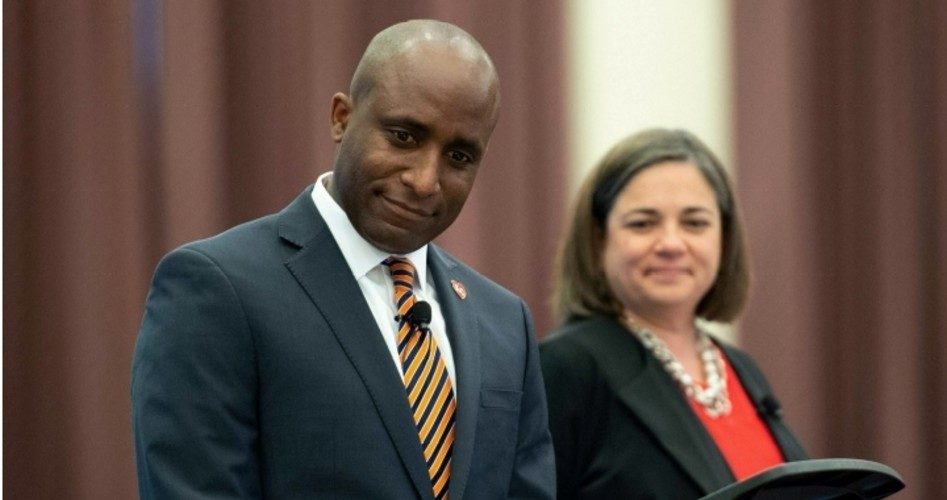
As part of its partial reopening of “nonessential” institutions, Kansas City, Missouri, is now requiring businesses and churches to maintain lists of people who enter their doors, an Orwellian policy established ostensibly to enable the city health department to respond quickly to reports of COVID-19 exposure.
On Thursday, Mayor Quinton Lucas (shown), a Democrat, issued an executive order relaxing some of the provisions of his previous lockdown orders. The new order allows “nonessential” businesses to reopen under the “10/10/10 rule,” which states that “non-essential businesses open to the public must limit the number of customers allowed to no more than ten (10) persons or ten (10) percent of building occupancy (whichever number is greater).”
As onerous as that edict is, it pales in comparison to what follows: “To ensure adequate confidential public health tracing in the event of a Covid-19 outbreak, those business operations must maintain a record of time of service for customers on the premises in a seated capacity for more than ten (10) minutes.” A city FAQ page indicates that the business must “record the names, contact information, and approximate entry/exit time of” these customers. This information must be turned over to the department of public health upon request.
It gets worse. While Lucas is graciously allowing “religious gatherings” to resume, he is applying the same rules to them. Under his order, they must follow the 10/10/10 rule and “maintain a record of attendees” that must also be supplied to the health department upon request. In other words, anyone who goes to church or synagogue in Kansas City may now be reported to the city government.
“The Germans did this very thing to Jews — collecting the names and locations of all known synagogue attendees — in the early days of the Nazi regime,” wrote an outraged Mat Staver, founder and chairman of Christian legal organization Liberty Counsel.
Failure to comply with Lucas’ dictates “constitutes an imminent threat, creates an immediate menace to public health, and shall be considered a violation of Section 50-155 of the City’s Code of Ordinance,” reads the order. The penalty for violating that law is a fine of up to $500 and imprisonment for a maximum of six months. In addition, the order says the city may permanently shutter any “business or concern” found to be in violation.
After his order became national news, Lucas tried to soft-pedal it a bit. In an interview with KSHB-TV, he first claimed that compliance would be “voluntary.” However, he added, “You can call 311 if you feel that something’s not being followed either at your workplace or a place you like to go to a lot. We would follow up by trying to talk to that business, trying to make sure that they correct and address those issues, and then only after that escalating that to some further follow-up including potential fines.”
Put another way, observed PNP News, “if you don’t follow the order, you can get snitched on through the 311 number,” with the penalty including not just fines but jail time and potentially a shutdown of your business or church. Yet remarkably, immediately after making this statement, Lucas said, “Our whole goal is not to be Big Brother. It’s not to be a police state. It’s to keep people safe.”
Safe from what? Certainly not from the city government, which can now demand — allegedly because of a report of an outbreak of a disease that appears to be no more dangerous than the seasonal flu — the names and contact information of all those who have visited a business or church and severely penalize any institution that fails to comply.
While the mayor’s order assures people that the information will “remain confidential in accordance with professional public health standards and may be used only to address public health concerns,” government promises generally aren’t worth the paper they’re printed on. But even if this order is used in a relatively benign manner, its existence sets a precedent for future, more sinister edicts. At that point, Staver’s warning that “we are at the brink of losing America as we know it, along with all the liberties our once-free people enjoyed” will look less like hyperbole and more like prophecy.
Photo: AP Images
Michael Tennant is a freelance writer and regular contributor to The New American




